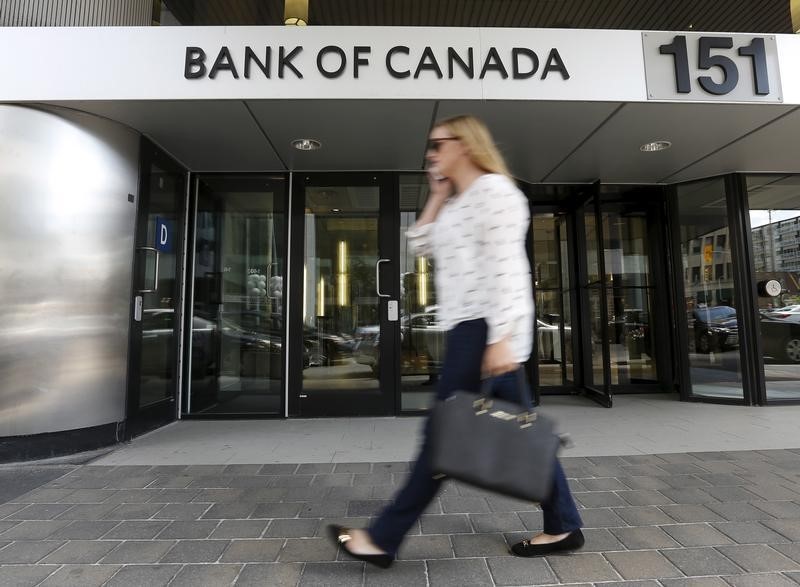OTTAWA, Jan 9 (Reuters) - - Canadian companies are more optimistic about future sales as demand picks up and plan to boost investment and hiring, but businesses are uncertain about potential U.S. protectionism and signs of substantial labor market slack exist, the Bank of Canada said on Monday.
Expectations of sales growth over the next 12 months improved as the oil price slump has dissipated and demand from both domestic and U.S. buyers has picked up, the Bank of Canada said in its business outlook survey.
Signs of future sales, including new orders, were more widespread than three months ago.
While a weaker Canadian currency promotes tourism and benefits firms that see less competition from their U.S. counterparts, "considerable uncertainty" surrounds the implications of the U.S. election, the survey showed.
"Firms' views ... are divided: some are optimistic about the prospect of increased infrastructure and military spending as well as changes in energy policies, while others are more pessimistic, often because of the risk of increased protectionism," the central bank said in the report.
While plans to invest over the next 12 months are more pronounced in central and eastern Canada, "positive investment intentions are now evident in all regions and sectors, particularly among exporters," the report said.
Exporters cited the weaker Canadian dollar and U.S. demand as the most important supporting factors for improving sales expectations.
While the balance of opinion points more strongly to hiring plans and expansion over the next 12 months, resource-related businesses still have limited hiring and "material excess slack remains" in regions affected by the slump in the energy sector.
Input and output price growth are expected to accelerate, allowing firms to begin restoring profit margins, the survey showed. Some respondents indicated that suppliers are attempting to stabilize or increase prices following cuts over the past two years, or pass on anticipated increases in commodity prices.
The ability to pass on increases to customers helped push inflation expectations up slightly from the low level of the autumn survey, but inflation expectations remained at the bottom half of the central bank's inflation-control range.
Credit conditions were little changed, with most firms saying credit is easy or relatively easy to obtain.
